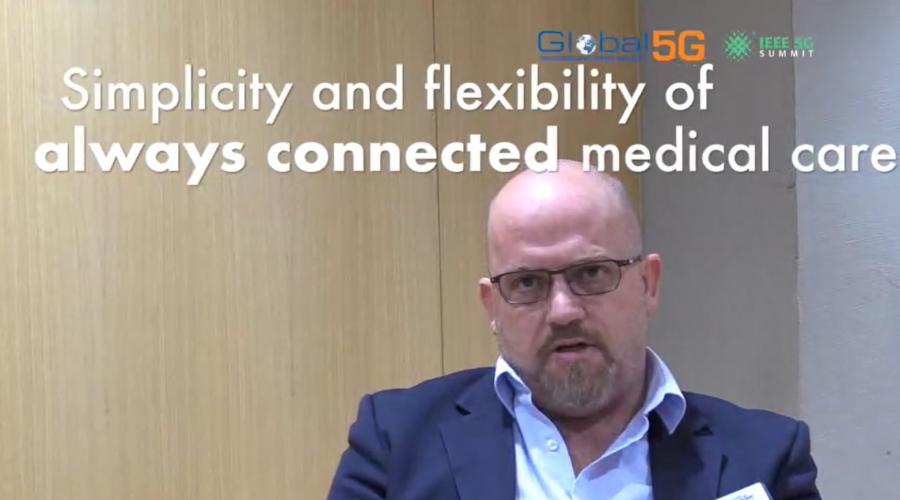Interview with Ian Hay: the role of standardisation for 5G Health and Care

The path to 5G technology will have an impact on most industry sectors, primarily Energy, Factories of the Future, Media and Entertainment, Automotive and Healthcare. The 5th Generation technology is expected to have a major impact on the latter vertical, a change that was never experienced before. 5G Health holds the potential to revolutionise societal and business aspects of the sector.
Improved speed and reduced latency are just two of the crucial benefits of 5G exploitable in the Health sector. At the recent 5G Health Session organised by Global5G.org at IEEE 5G Summit in Helsinki, we interviewed Ian Hay, Chair of the Global Technical Committee for PCH Alliance, to share his insights and answer a few of the most pressing questions.
“The simplicity and flexibility of always connected medical centres at home will be the real drive for 5G in Healthcare” stated Ian, when asked about the essential aspects of a future flagship on personal connected health enabled by 5G.
Just like in any other major industry sector, standards and regulations play a crucial role in the path towards 5G implementation. “The essential role of standards […] is to have the data models at source in the devices, in a consistent and harmonised fashion” he added, highlighting also the importance of monitoring the regulations making sure to avoid unnecessary barriers.
Talking about the importance of standardisation, it comes natural to ask ourselves about the current fragmentation Europe suffers from. To this matter, Ian stated that if the healthcare ministries started to mandate the use of a single standard in healthcare data, then the industry would necessarily move towards that standard. The adoption of a top-down prescriptive approach could help us move beyond the current fragmentation.
The use of a harmonised set of standards is being undertaken in other sectors, and should be done in the healthcare too. “It’s about time that changes” concludes Ian.
Watch the full interview:



